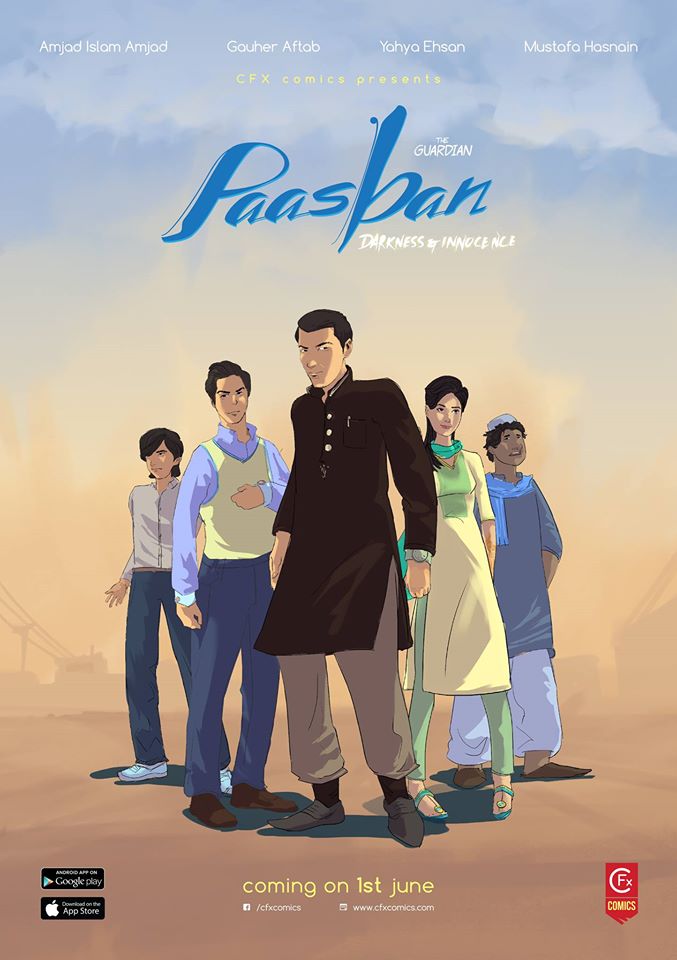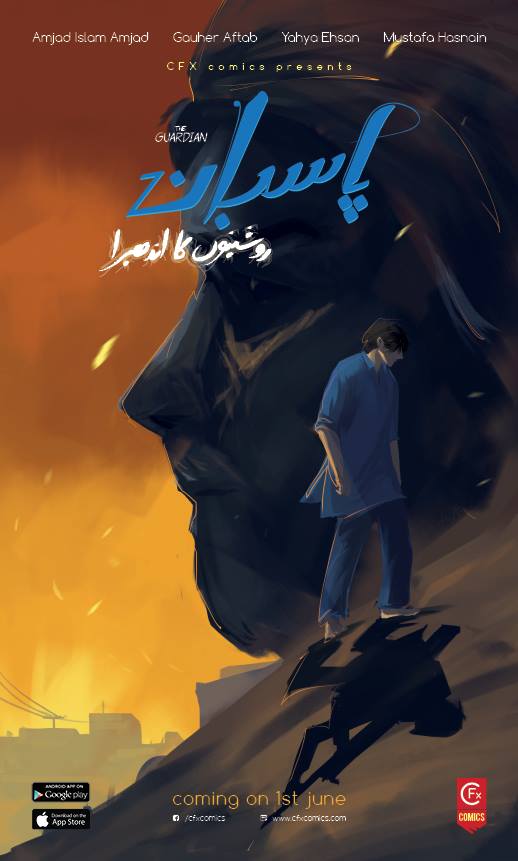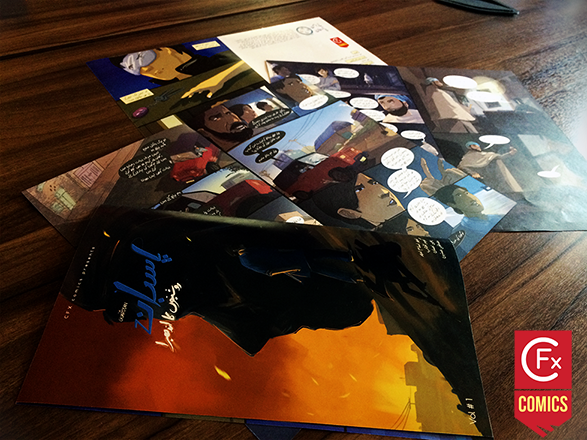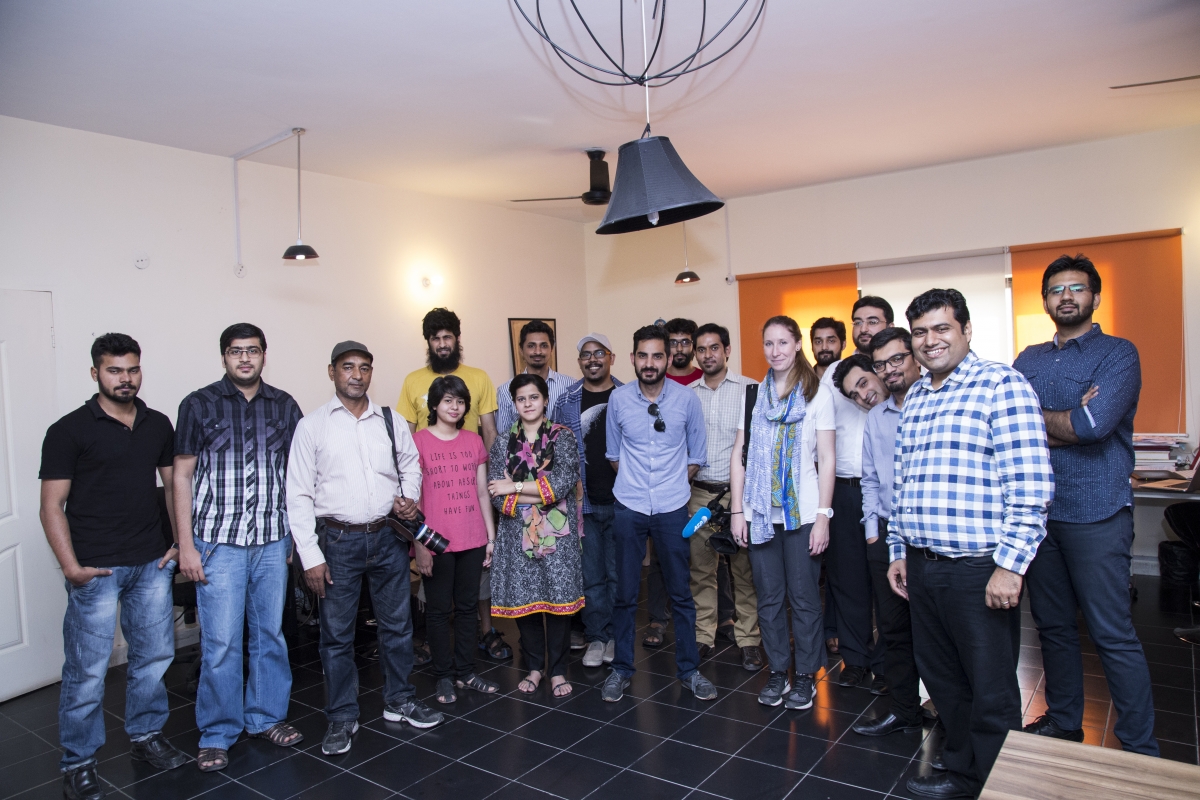From this week, hundreds of school children in Lahore and few other cities of Pakistan will read comic books that will be significantly different from ones they may have read before.
'Paasban', or 'Guardians', is a unique series of comic books created by three Pakistanis to keep children, or anyone impressionable, away from extremism that has claimed many innocent lives in the country.
It was the 16 December Peshawar school attack that pushed the trio – Syed Mustafa Hasnain, a graduate from the London School of Economics; Gauher Aftab, from Knox College, USA and Yahya Ehsan from the National College of Arts Lahore – to turn into comic book creators for a noble cause.
"Through the Paasban series, we wish to help further a narrative that can swing the tide of public opinion against anti-state groups who use religion as a tool, and move society towards reclaiming Islam from those who would pervert its teachings into violence," the trio tells IBTimes India.
The three had been working on the project for two years, with Hasnain and Ehsan founding the Creative Frontiers company in 2013 in Lahore, but the Peshawar attack made them realise that "if ever there was a time to tell this story, this was it".
"Through this project, we wish to create guardians, or Paasban, in every home in Pakistan to protect society from narratives of hatred and bigotry, and resist against the the divisions that threaten to tear us apart," says Aftab.
Paasban is a three-part comic series based on the life of college friends in Pakistan. One of the characters drops out from college to join a religious group and his friends worry if he is embracing extremism.
For Aftab, the story relays a part of his own life, when he almost picked up the gun.
"As a 13 year old boy who had little exposure to matters of global politics, power, empire and history, I came across a charismatic teacher who was able to instill within me a worldview that inspired hatred and violence against anyone deemed to be 'enemies' of Islam. His words had little influence on others, but he was able to get through to me," recalls Aftab.
It was a timely intervention by his family that stopped him from joining jihad.
"Noticing a marked change in my behaviour and overt religiosity at home, my family was able to intervene and stop me from going further," he says.
His experience, Aftab says, led him to understand how Takfiri ideology is often used to mislead poor and marginalised people, especially children.
"In this, a Pakistani child is no less vulnerable than a child in France,the UK, US or even India. Any person who feels helpless and lost can be exploited by an ideology of hate; it should come as no surprise when ISIS fighters are recruited from among poor and marginalised Muslim communities in Western countries, nor that a large portion of them are new converts," he says.
Through the Paasban 'Guardian' series, the trio aim to create awareness among children about such forces so that they are not misled into jihad or extremism.
"The only way to prevent our children from being seduced by violent dogma is to provide them with an awareness of social and religious values that reject extremism and hatred in every form. We are using characters and situations they can relate to, and learn from, so that they will recognise when someone is trying to use religion to mislead them or others," says Aftab.
The Paasban series is not just being released in print, but is also now a digitally published graphic novel that is freely available via the CFx Comics app on Android and IoS platforms.
The fact that smartphones are now being increasingly used by lower-income groups in the country makes it easy for the Paasban series to reach a wide audience.
"This is coming right at a time when smartphone and 3G penetration among Pakistan's lower income groups is increasing exponentially, so we finally have the means to reach a mass audience and really inspire a change in beliefs at the grassroots level," the team says.
Hasnain, Ehsan and Aftab now plan to take their story to television, movies, games, and other media to reach an even wider audience.












